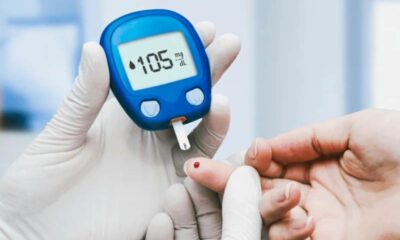Dehydration, a condition where your body lacks sufficient water, can have a significant impact on your blood sugar levels. This connection is particularly important for people with diabetes, but it can also affect those without the condition.
The Link Between Dehydration and Blood Sugar
When you’re dehydrated, your blood becomes more concentrated due to the reduced volume of water. This concentration increases the levels of glucose in your bloodstream, which can lead to higher blood sugar levels. In severe cases, dehydration can even lead to hyperglycemia (high blood sugar), a condition that requires careful management to prevent complications.
How Dehydration Impacts Insulin Function
Insulin is the hormone responsible for helping glucose enter your cells to be used as energy. However, dehydration can impair insulin’s effectiveness, making it harder for your body to regulate blood sugar levels. This is because, with less water in the body, the kidneys have to work harder to conserve water, which can lead to a decrease in blood flow and potentially reduced insulin delivery to cells.
Symptoms of Dehydration and High Blood Sugar
The symptoms of dehydration and high blood sugar can overlap, making it crucial to recognize the signs early. Common symptoms of dehydration include:
- Thirst
- Dry mouth
- Fatigue
- Dizziness
- Dark yellow urine
When blood sugar levels rise due to dehydration, you might also experience:
- Increased thirst
- Frequent urination
- Headaches
- Blurred vision
- Difficulty concentrating
The Importance of Staying Hydrated
Maintaining adequate hydration is essential for everyone, but it is particularly crucial for people managing diabetes. Drinking enough water helps dilute the blood, which can prevent glucose from becoming too concentrated. Additionally, staying hydrated supports kidney function, aiding in the proper excretion of excess glucose through urine.
Tips for Staying Hydrated
- Drink water regularly: Aim for at least 8 glasses of water a day, more if you’re physically active or in a hot environment.
- Monitor your urine color: Light yellow urine typically indicates proper hydration, while darker urine suggests you need more fluids.
- Include hydrating foods: Fruits and vegetables with high water content, such as cucumbers, watermelon, and oranges, can contribute to your daily fluid intake.
- Limit diuretics: Be mindful of consuming too many diuretic beverages like coffee or alcohol, which can increase urine output and contribute to dehydration.
Conclusion
Dehydration can have a direct and profound effect on blood sugar levels, leading to potential health risks, especially for those with diabetes. Understanding this connection underscores the importance of maintaining proper hydration to support overall health and effective blood sugar management.

 Diabetology2 weeks ago
Diabetology2 weeks ago
 Diabetology1 week ago
Diabetology1 week ago
 Diabetology5 days ago
Diabetology5 days ago
 Diabetology7 days ago
Diabetology7 days ago
 Diabetology7 days ago
Diabetology7 days ago
 Diabetology3 days ago
Diabetology3 days ago
 Diabetology3 days ago
Diabetology3 days ago
 Diabetology1 day ago
Diabetology1 day ago










